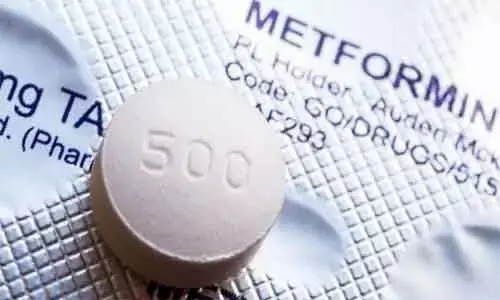- Home
- Medical news & Guidelines
- Anesthesiology
- Cardiology and CTVS
- Critical Care
- Dentistry
- Dermatology
- Diabetes and Endocrinology
- ENT
- Gastroenterology
- Medicine
- Nephrology
- Neurology
- Obstretics-Gynaecology
- Oncology
- Ophthalmology
- Orthopaedics
- Pediatrics-Neonatology
- Psychiatry
- Pulmonology
- Radiology
- Surgery
- Urology
- Laboratory Medicine
- Diet
- Nursing
- Paramedical
- Physiotherapy
- Health news
- Fact Check
- Bone Health Fact Check
- Brain Health Fact Check
- Cancer Related Fact Check
- Child Care Fact Check
- Dental and oral health fact check
- Diabetes and metabolic health fact check
- Diet and Nutrition Fact Check
- Eye and ENT Care Fact Check
- Fitness fact check
- Gut health fact check
- Heart health fact check
- Kidney health fact check
- Medical education fact check
- Men's health fact check
- Respiratory fact check
- Skin and hair care fact check
- Vaccine and Immunization fact check
- Women's health fact check
- AYUSH
- State News
- Andaman and Nicobar Islands
- Andhra Pradesh
- Arunachal Pradesh
- Assam
- Bihar
- Chandigarh
- Chattisgarh
- Dadra and Nagar Haveli
- Daman and Diu
- Delhi
- Goa
- Gujarat
- Haryana
- Himachal Pradesh
- Jammu & Kashmir
- Jharkhand
- Karnataka
- Kerala
- Ladakh
- Lakshadweep
- Madhya Pradesh
- Maharashtra
- Manipur
- Meghalaya
- Mizoram
- Nagaland
- Odisha
- Puducherry
- Punjab
- Rajasthan
- Sikkim
- Tamil Nadu
- Telangana
- Tripura
- Uttar Pradesh
- Uttrakhand
- West Bengal
- Medical Education
- Industry
Adjust metformin dose to BMI to obtain significant result in PCOS patients, says study

Italy: In order to obtain significant results in terms of hormonal, metabolic, and clinical responses in PCOS patients, the dose of metformin should be adjusted to patients' BMI, suggests a recent study. The results, published in the European Review for Medical and Pharmacological Sciences, demonstrate a correlation between the required dose of metformin, BMI, and hyperandrogenism.
Polycystic ovary syndrome is a common hormonal disorder that occurs among reproductive-age women. About 60% of PCOS women have insulin resistance. While there has been a wide validation of the metformin efficacy in reducing insulin resistance and decreasing androgen levels. However, there is no agreement on the metformin dose to be used. To find the same, Giuseppe Morgante, Department Molecular and Development Medicine, University of Siena, Siena, Italy, and colleagues conducted a prospective non-randomized cohort study of 108 insulin resistant, overweight and obese PCOS women, aged between 22 and 35 years.
All patients received 1500 mg of metformin (500 mg x 3 times/day) for the first 6 months. At the end of this period, the researchers evaluated the patients' HOMA index. In patients who did not demonstrate normalization of the HOMA index, the dose was increased to 2500 mg/day (500 mg at breakfast and 1000 mg at lunch and dinner) for an additional 6 months. The hormonal blood profile, fasting insulin and fasting glucose levels, HOMA index, anthropometric assessment, pelvic ultrasound, FAI index, and cholesterol were evaluated.
Key findings of the study include:
- Overall results showed a good response to metformin therapy in insulin-resistant PCOS patients with BMI >25, while in patients with higher BMI (31.15 ± 0.40), no normalization of HOMA was found.
- At the higher dose of metformin, obese patients achieved a good response to therapy, with improvement in BMI, menstrual pattern, cholesterol levels and hyperandrogenism.
"Our results demonstrate a correlation between the required dose of metformin, BMI, and hyperandrogenism. The dose of metformin should be adjusted to patients' BMI in order to obtain significant results in terms of clinical, metabolic and hormonal responses," concluded the authors.
The study, "Metformin doses and body mass index: clinical outcomes in insulin resistant polycystic ovary syndrome women," is published in the journal European Review for Medical and Pharmacological Sciences.
Dr Kamal Kant Kohli-MBBS, DTCD- a chest specialist with more than 30 years of practice and a flair for writing clinical articles, Dr Kamal Kant Kohli joined Medical Dialogues as a Chief Editor of Medical News. Besides writing articles, as an editor, he proofreads and verifies all the medical content published on Medical Dialogues including those coming from journals, studies,medical conferences,guidelines etc. Email: drkohli@medicaldialogues.in. Contact no. 011-43720751


